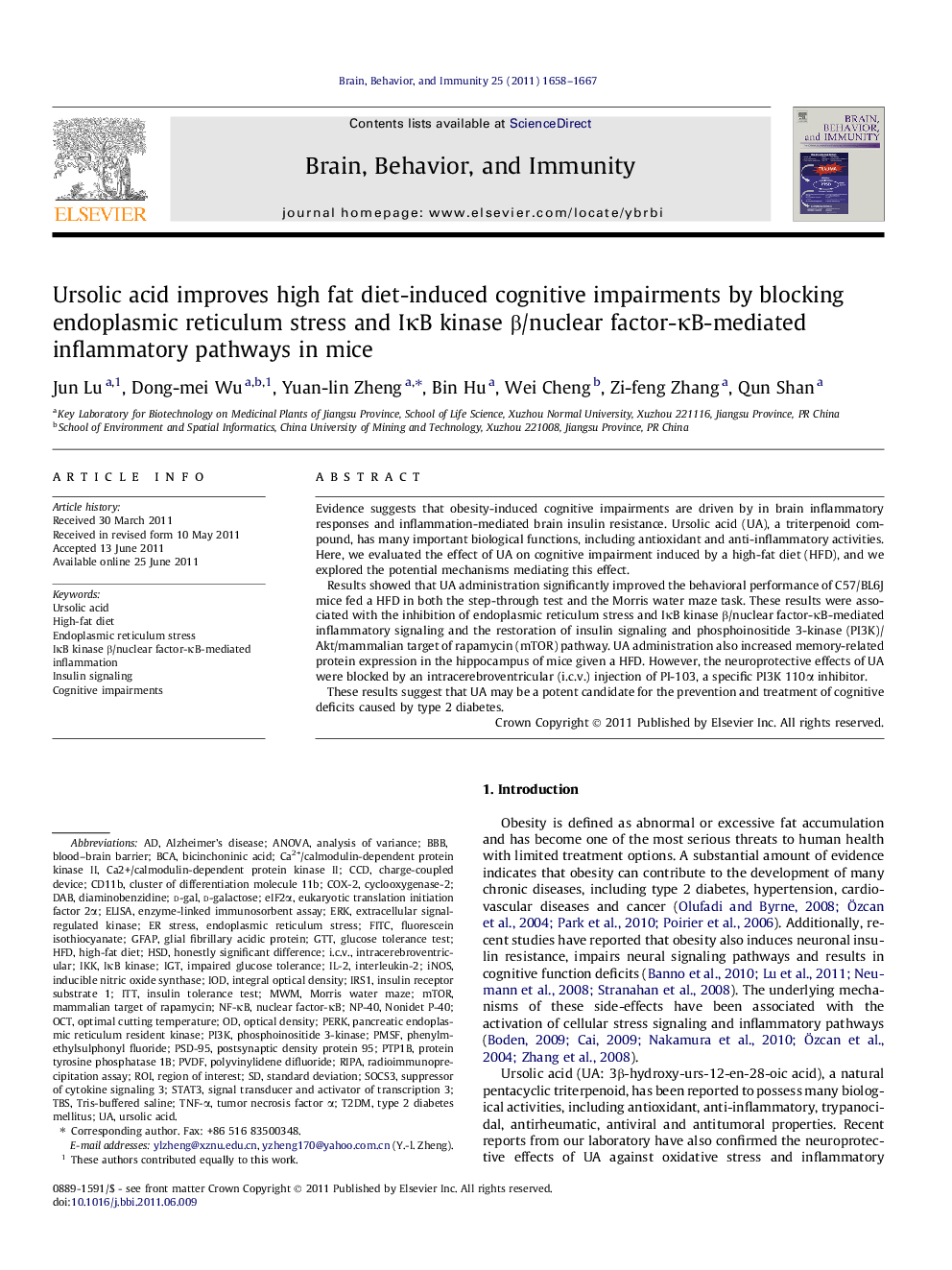| Article ID | Journal | Published Year | Pages | File Type |
|---|---|---|---|---|
| 922600 | Brain, Behavior, and Immunity | 2011 | 10 Pages |
Evidence suggests that obesity-induced cognitive impairments are driven by in brain inflammatory responses and inflammation-mediated brain insulin resistance. Ursolic acid (UA), a triterpenoid compound, has many important biological functions, including antioxidant and anti-inflammatory activities. Here, we evaluated the effect of UA on cognitive impairment induced by a high-fat diet (HFD), and we explored the potential mechanisms mediating this effect.Results showed that UA administration significantly improved the behavioral performance of C57/BL6J mice fed a HFD in both the step-through test and the Morris water maze task. These results were associated with the inhibition of endoplasmic reticulum stress and IκB kinase β/nuclear factor-κB-mediated inflammatory signaling and the restoration of insulin signaling and phosphoinositide 3-kinase (PI3K)/Akt/mammalian target of rapamycin (mTOR) pathway. UA administration also increased memory-related protein expression in the hippocampus of mice given a HFD. However, the neuroprotective effects of UA were blocked by an intracerebroventricular (i.c.v.) injection of PI-103, a specific PI3K 110α inhibitor.These results suggest that UA may be a potent candidate for the prevention and treatment of cognitive deficits caused by type 2 diabetes.
Highlight► Ursolic acid exerts its neuroprotective effects on obesity-induced mouse cognitive deficits via inhibiting brain inflammation and insulin resistance.
